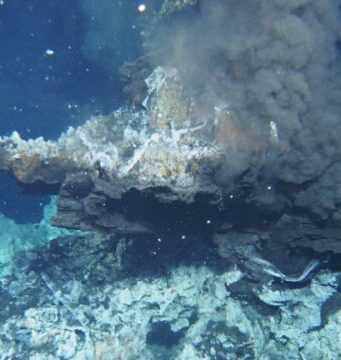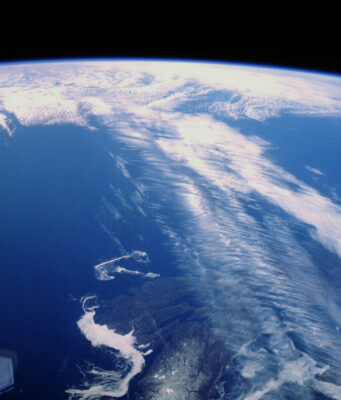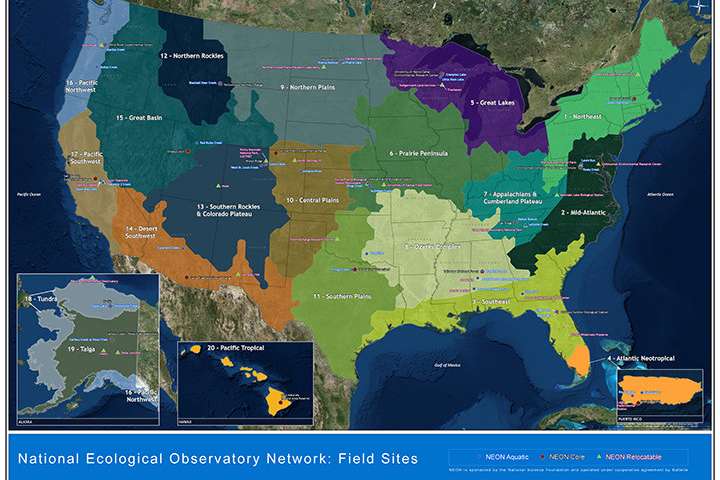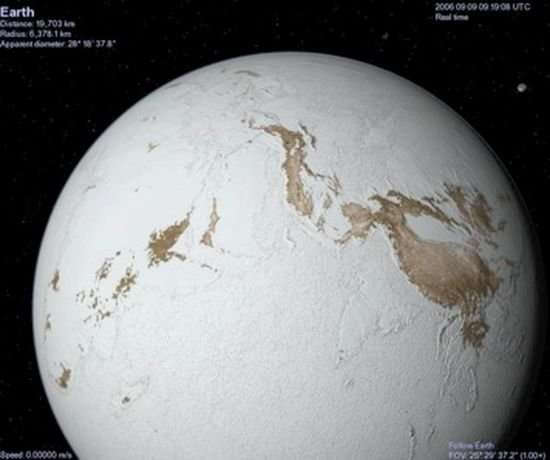Large swaths of U.S. forests are vulnerable to drought, forest fires and disease. Many local impacts of forest loss are well known: drier soils, stronger winds, increased erosion, loss of shade and habitat. But if a whole forest disappears,...
New research has shown that natural variations in global mean temperature are always forced by changes in heat release and heat uptake by the oceans, in particular the heat release associated with evaporation.
Analysing data from six climate models that...
To learn about the rise and fall of ancient European civilizations, researchers sometimes find clues in unlikely places: deep inside of the Greenland ice sheet, for example.
Thousands of years ago, during the height of the ancient Greek and Roman...
As North Korea's president pledges to "denuclearize" the Korean peninsula, an international team of scientists is publishing the most detailed view yet of the site of the country's latest and largest underground nuclear test on Sept. 3, 2017.
The new...
Hurricanes that intensify rapidly—a characteristic of almost all powerful hurricanes—do so more strongly and quickly now than they did 30 years ago, according to a study published recently in Geophysical Research Letters, a journal of the American Geophysical Union.
While...
About 700 million years ago, the Earth experienced unusual episodes of global cooling that geologists refer to as "Snowball Earth."
Several theories have been proposed to explain what triggered this dramatic cool down, which occurred during a geological era called...
Scientists drilling deep into ancient rocks in the Arizona desert say they have documented a gradual shift in Earth's orbit that repeats regularly every 405,000 years, playing a role in natural climate swings. Astrophysicists have long hypothesized that the...
There is a mystery in Earth's ancient past, and the clues lie in the desert rocks of Australia and other ancient places.
The last century has seen rapid advances in our understanding of how the Earth formed, and how the...
A study of the most recent near-reversals of the Earth's magnetic field by an international team of researchers, including the University of Liverpool, has found it is unlikely that such an event will take place anytime soon.
There has been...
Growing 'dead zone' confirmed by underwater robots in the Gulf of Oman
New research from the University of East Anglia (UEA) has confirmed a dramatic decrease in oxygen in the Gulf of Oman part of the Arabian Sea. But the...
Around four billion years ago, the Moon had a magnetic field that was about as strong as Earth's magnetic field is today. How the Moon, with a much smaller core than Earth's, could have had such a strong magnetic...


















